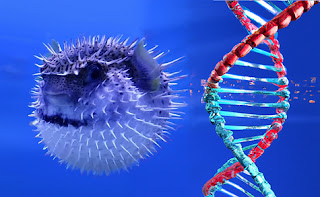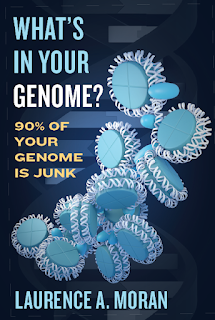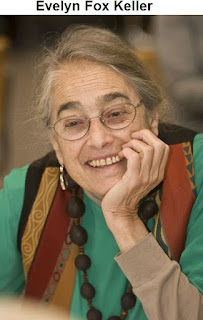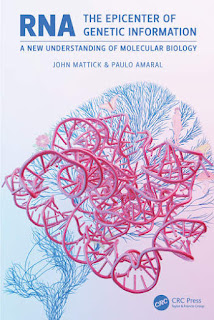Science in School is a magazine for European science teachers. Two graduate students1 have just published an article in the November issue: Not junk after all: the importance of non-coding RNAs.
Note: The article has been edited to remove some of the references to junk DNA and the editor has added the following disclaimer to the end of the article: Editor’s note: Some parts of the introduction and conclusion were rephrased to avoid any misunderstanding concerning the nature of ‘junk DNA’, which is not the focus of this article. Here's a link to the revised article: Not junk after all: the importance of non-coding RNAs. More changes are expected.
Not junk after all: the importance of non-coding RNAs
Originally assumed to be useless ‘junk DNA’, sections of the genome that don’t encode proteins have been revealed as a source of many important non-coding RNA structures.
The central dogma of molecular biology is that DNA is used as a template to create messenger RNA (mRNA), which in turn is translated into proteins that build the tissues in our bodies and carry out the main functions of our cells and organs. In other words, DNA → mRNA → proteins. Interestingly, though, only 2% of the DNA in our whole genome codes for proteins! So, what does the other 98% of the human genome do? In the mid-1900s, it was widely believed that a great part of our genome was useless, repetitive ‘junk DNA’. However, this belief goes against the evolution theory, which suggests that useless sequences would be eliminated from the genome since their maintenance requires energy. In the late 20th century and the early 21st century, this junk DNA has been shown to not only contain important regulatory elements for transcription, but also sequences that encode various non-coding RNAs that have functions in many cellular mechanisms.
I just finshed a podcast interview with Kat Arney and one of the questions she asked was what is the most important thing I'd like scientists to know about this topic. I picked evolution—I'd like modern researchers to understand that there's more to evolution than natural selection. You can see the problem in this example where two students who are working toward a Ph.D. at a top lab in Europe think that junk DNA "goes against the evolution theory."
That's sad. It's also sad that these two students think that 98% of our genome might be devoted to regulation and non-coding genes.
We need to focus on educating the next generation of scientists and that starts with educating science teachers. This is not the way to do it.
Here's the contact information for Science in School. I've written the editor at editor@scienceinschool.org. Please send a message if you are as concerned about the spread of scientific misinformation as I am.
Zuzana Koskova at the European Molecular Biology Laboratory in Heidelberg (Germany) and Miguel Hernandez at the University Hospital, Heidelberg. I tried sending an email message to Zuzana Koskova but got no reply. I was unable to find contact information for Miguel Hernandez.



































